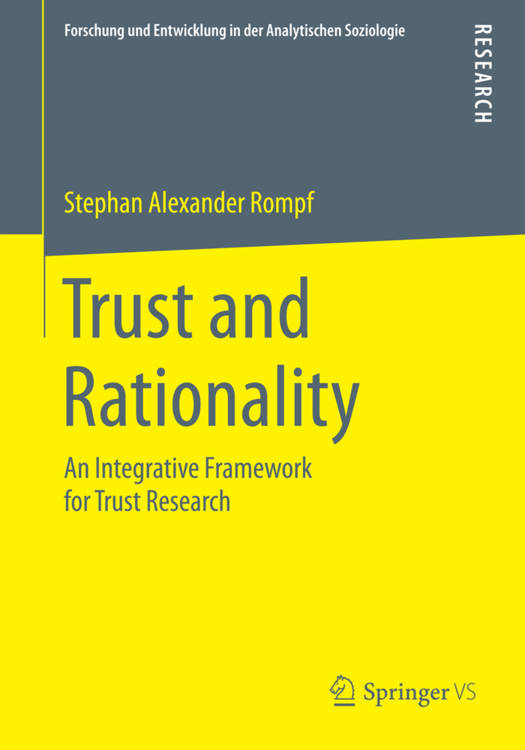
- Afhalen na 1 uur in een winkel met voorraad
- Gratis thuislevering in België vanaf € 30
- Ruim aanbod met 7 miljoen producten
- Afhalen na 1 uur in een winkel met voorraad
- Gratis thuislevering in België vanaf € 30
- Ruim aanbod met 7 miljoen producten
Omschrijving
Combining economic, social-psychological and sociological approaches to trust, this book provides a general theoretical framework to causally explain conditional and unconditional trust; it also presents an experimental test of the corresponding integrative model and its predictions. Broadly, it aims at advancing a cognitive turn in trust research by highlighting the importance of (1) an actor´s context-dependent definition of the situation and (2) the flexible and dynamic degree of rationality involved. In essence, trust is as "multi-faceted" as there are cognitive routes that take us to the choice of a trusting act. Therefore, variable rationality has to be incorporated as an orthogonal dimension to the typological space of trust. The theory presents an analytically tractable model; the empirical test combines trust games, high- and low-incentive conditions, framing manipulations, and psychometric measurements, and is complemented by decision-time analyses.
Specificaties
Betrokkenen
- Auteur(s):
- Uitgeverij:
Inhoud
- Aantal bladzijden:
- 415
- Taal:
- Engels
- Reeks:
Eigenschappen
- Productcode (EAN):
- 9783658073268
- Verschijningsdatum:
- 13/10/2014
- Uitvoering:
- Paperback
- Formaat:
- Trade paperback (VS)
- Afmetingen:
- 148 mm x 210 mm
- Gewicht:
- 562 g

Alleen bij Standaard Boekhandel
Beoordelingen
We publiceren alleen reviews die voldoen aan de voorwaarden voor reviews. Bekijk onze voorwaarden voor reviews.











